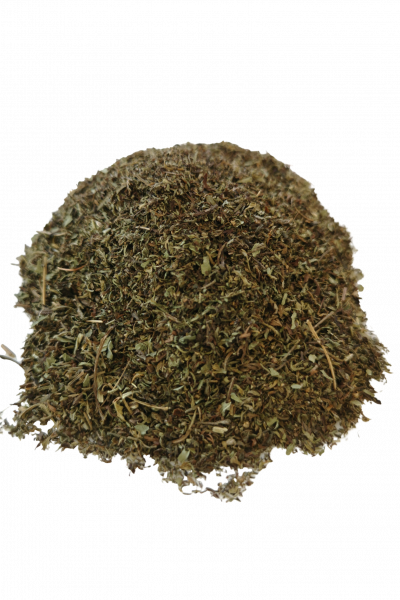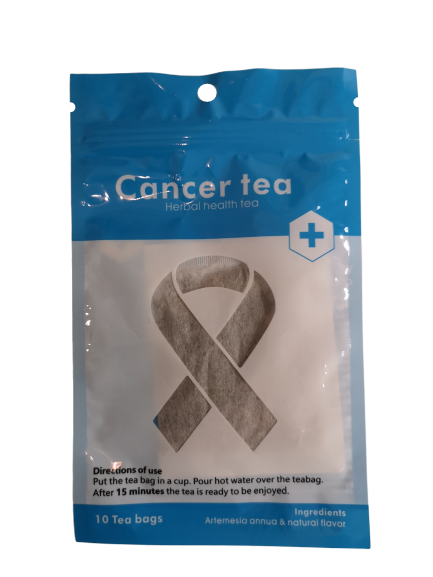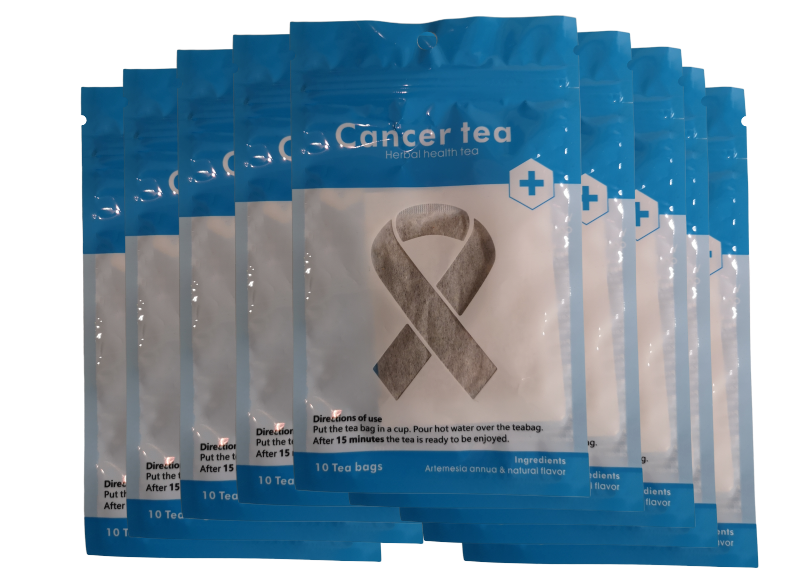Artemesia annua tea
Development of new efficient therapeutics for the treatment of cancer is an important endeavor, but for most patients, access to these advanced treatment modalities is lacking, too expensive to be widely available, or associated with significant morbidity thereby further compromising the patients’ survival. For this reason, Artemisia is of great interest. Multiple molecular studies have shown promising effects of Artemisia annua regarded to cancer and these findings are supported by positive results in human case-reports.
We have refined and further developed an herbal health tea with some very unique qualities that offers new hope. Artemisia annua with all its positive effects intact and no negative side-effects is now made available to be enjoyed as a tea.
The herbal health tea is sold in pouches with 10 tea bags in each pouch.
We don’t claim that our tea cures or prevents cancer
– but scientific researchers find it promising!
Research findings suggest that artemisinin compounds may:
BE A THERAPEUTIC ALTERNATIVE IN HIGHLY AGGRESSIVE CANCERS
“In a study, testing 55 cell lines, artesunate showed inhibitory effects agains leukaemia, colon, melanoma, breast, ovarian, prostate, central nervous system and renal cancer cells”
Das AK. Anticancer effect of antimalarial artemisinin compounds. Ann Med Health Sci Res 2015;5:93-102
HAVE A PROTECTIVE EFFECT AGAINST RECURRING CANCER
Krishna S, Ganapathi S, Ster IC, Saeed ME, Cowan M, Finlayson C, Kovacsevics H, Jansen H, Kremsner PG, Efferth T, Kumar D (2015) A randomised, double blind, placebo-controlled pilot study of oral artesunate therapy for colorectal cancer. EBioMedicine 2:82–90
PROLONG LIFE IN PATIENTS WITH METASTATIC UVEAL CANCER
Berger TG, Dieckmann D, Efferth T, Schultz ES, Funk JO, Baur A, et al. Artesunate in the treatment of metastatic uveal melanoma – first experiences. Oncol Rep (2005) 14(6):1599–603
REDUCE TUMOR SIZE, REMISSION OF SYMPTOMS, IN PATIENTS WITH PITUITARY CANCER
Singh, N.P.; Panwar, V.K. Case report of a pituitary macro adenoma treated with artemether. Integr. Cancer Ther. 2006, 5, 391–394
SIGNIFICANTLY REDUCE TUMOR SIZE AFTER ONLY 2 MONTHS of TREATMENT
Singh and Verma. Case report of a laryngeal squamous cell carcinoma treated with artesunate. Arch. Oncol, 10 (2002), pp. 279-280
prolong time to tumor progression and short-term survival
Zhang, Z.Y.; Yu, S.Q.; Miao, L.Y.; Huang, X.Y.; Zhang, X.P.; Zhu, Y.P.; Xia, X.H.; Li, D.Q. Artesunate combined with vinorelbine plus cisplatin in treatment of advanced non-small cell lung cancer: A randomized controlled trial. Zhong Xi Yi Jie He Xue Bao 2008, 6, 134–138
PROMOTIONAL OFFER
10 x 10 teabags
$299.99
+ 2 x 10 free teabags
+ free shipping
Add to cart
Cancer research organisations
The Danish Cancer Society: Artemisia annua and cancer: In research experiments, the drug artemisinin has also been shown to be effective against cancer cells, and researchers believe that the toxic oxygen compounds that the drug forms kills the cancer cells.
http://www.cancer.dk/hjaelp-viden/det-kan-du-selv-goere/alternativ-behandling/kosttilskud/kinesisk-malurt/
Memorial Sloan Kettering Cancer Center: A. annua has also been investigated for its anticancer properties. Terpenoids and flavonoids isolated from the herb exert cytotoxic effects in several human tumor cell lines. The constituents artemisinin and artesunate have been studied as anticancer treatments…. Laboratory studies have shown some effect.
http://www.mskcc.org/cancer-care/integrative-medicine/herbs/artemisia-annua
Researchers at the University of Washington have updated a traditional Chinese medicine to create a compound that is more than 1,200 times more specific in killing certain kinds of cancer cells than currently available drugs, heralding the possibility of a more effective chemotherapy drug with minimal side effects. The new compound puts a novel twist on the common anti-malarial drug artemisinin, which is derived from the sweet wormwood plant (Artemisia annua L)… “The compound is like a special agent planting a bomb inside the cell,” said Tomikazu Sasaki, chemistry professor at UW and senior author of the study.
http://www.washington.edu/news/2008/10/13/scientists-develop-new-cancer-killing-compound-from-salad-plant/
Cancer-tea is sold by The Best Repellent LLC.




